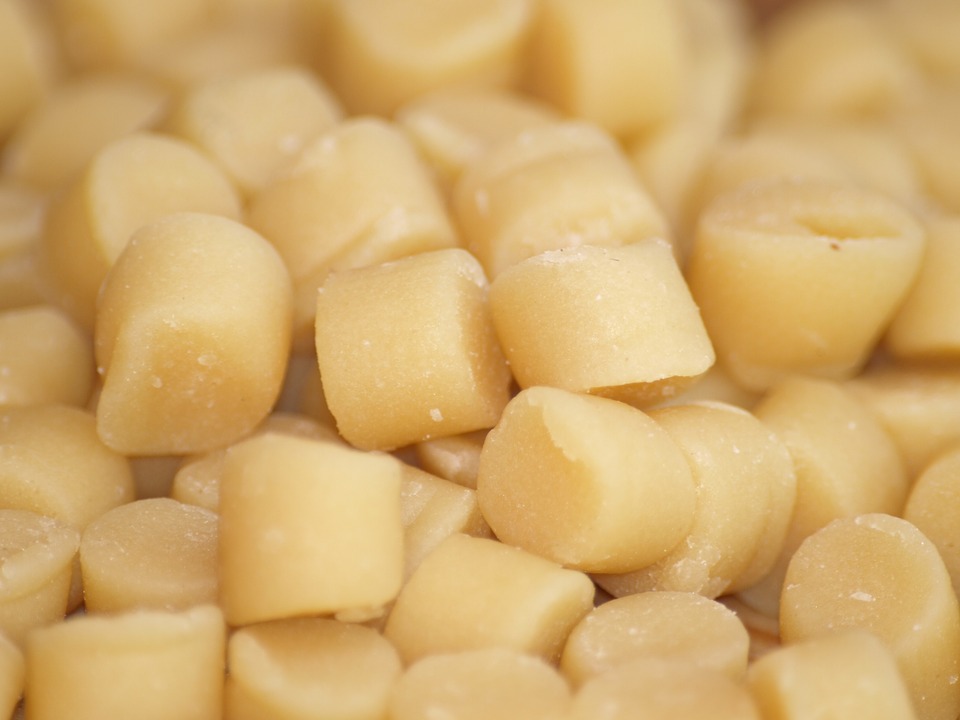As a dog owner, you know that your furry friend loves to try anything you're eating. But you're also aware that some human foods can be harmful to dogs. So, what about avocados? Can dogs eat avocados, or is this a fruit you need to keep off the kitchen counter? I've been there, with a curious pup and a plate of guacamole, wondering if it's safe to share. That's when I decided to delve into the world of avocado safety for dogs. It's a topic that often sparks debate, and I wanted to get to the bottom of it – for my dog's sake, and yours.
Part 1: The Avocado Enigma: Why the Fuss?

You might have heard that avocados are poisonous to dogs, and it's true – they contain a substance called persin. But let's not jump to conclusions. It's not as simple as "avocados = bad for dogs." It's a bit more nuanced than that.
The Persin Problem: A Closer Look
Persin is a fungicidal toxin found in all parts of the avocado plant, including the fruit, leaves, pit, and skin. While not harmful to humans, it can cause serious problems for dogs, especially in larger quantities. It's a bit like that one friend who's harmless in small doses but can become a real pain if you're around them too long!
In my experience, I've seen the panic when my neighbour's dog, a little terrier mix named Rusty, got his paws on a fallen avocado pit. Rusty, bless his heart, is a curious soul and always up for an adventure. He's also a bit of a foodie and can't resist a good sniff and a nibble. Thankfully, he only took a few bites of the pit and didn't show any symptoms. But that's when I realised, even a small amount can trigger problems, depending on the dog's sensitivity.
Symptoms to Watch Out For: A Range of Reactions
If your dog ingests a considerable amount of avocado, you might notice the following symptoms:
- Vomiting: A classic sign of digestive upset. Your dog might be trying to expel the avocado before it does more harm.
- Diarrhoea: Another common symptom that indicates a problem in the digestive system.
- Difficulty breathing: This could be a sign of more serious issues, such as fluid buildup in the lungs (pulmonary effusion).
- Lethargy: Your dog might be tired and sluggish due to the toxin affecting their body.
- Abdominal pain: They might whimper or cry when you touch their belly.
- Fluid accumulation in the chest or abdomen (a condition called pleural or peritoneal effusion): This is a serious complication that requires immediate veterinary attention.
These symptoms can range from mild to severe, depending on the amount of avocado consumed and the individual dog's sensitivity. It's crucial to remember that each dog is different, and their reaction to avocado can vary significantly.
Part 2: A Deeper Dive into Avocado Dangers: Understanding the Risks

So, we know persin is the culprit. But how much avocado is too much for a dog? It's not a straightforward answer. It depends on the size of your dog, its weight, and its sensitivity to persin. The smaller the dog, the more likely they are to react negatively to even a small amount of avocado. It's like a tiny dog getting a big dose of something they're not supposed to have – the effects can be more pronounced.
The Avocado Pit: A Particular Concern: Why the Pit is a Big No-No
The avocado pit, in particular, is a common cause of concern for dogs. The pit is high in persin and can cause serious digestive issues if swallowed. It can also create a blockage in the digestive system, leading to surgery. Remember Rusty? The avocado pit was his favourite part, which is why my neighbour was so worried! The pit is hard and can be difficult for a dog to digest, potentially causing a choking hazard or intestinal blockage.
Leaves and Skin: A Lesser Known Danger: A Word About the Plant
Even the leaves and skin of the avocado plant can contain persin. While dogs are less likely to ingest these parts, it's still important to be aware of the potential dangers. The leaves are especially tempting to a curious dog, so it's best to keep them out of reach.
Part 3: The Safe Avocado Rules for Dog Owners: Making the Right Choice

The good news is that your dog doesn't have to completely miss out on the avocado goodness! But we need to be smart about this.
The Golden Rule: No Avocado for Your Pup: The Safest Path
The safest approach is to avoid giving your dog any part of the avocado. There's just no way to guarantee how much persin your pup will ingest, and it's not worth the risk. It's better to err on the side of caution and steer clear of avocados altogether.
Avocado for Dogs: A Myth Debunked: Separating Fact from Fiction
I've heard stories about dogs who have eaten avocados without any problems. While it might be true in some cases, it's not a guarantee. Every dog is different, and some might be more sensitive to persin than others. It's like that one friend who can handle spicy food without breaking a sweat while another one starts sweating just thinking about it. It's better to be safe than sorry.
Part 4: Avocado Alternatives for Your Pup: Delicious and Safe Options
Just because your dog can't have avocados doesn't mean they can't enjoy healthy treats. There are plenty of other options to satisfy their cravings.
Dog-Friendly Fruits and Veggies: A Healthy Snack Option: Plenty of Other Good Choices
There are plenty of dog-friendly fruits and vegetables that can satisfy your pup's cravings. Apples, bananas, carrots, and blueberries are all great choices. Just remember to choose organic options whenever possible, as these are free from pesticides and other harmful chemicals. It's about providing them with nutritious snacks that are good for their bodies.
Homemade Dog Treats: A Delicious Alternative: Creating Your Own Canine Delights
You can also try making your own dog treats at home. This gives you complete control over the ingredients and allows you to create healthy and delicious snacks that your dog will love. There are plenty of recipes online that use dog-friendly ingredients like peanut butter, oats, and bananas. It's a fun and rewarding way to bond with your furry friend and give them something special.
Part 5: What to Do if Your Dog Eats Avocado: A Guide to Action
Despite our best efforts, accidents happen. What do you do if your dog eats avocado?
Monitor Your Pup's Behavior: Paying Attention to Signs
First, stay calm and observe your dog for any signs of illness. If your dog is showing any of the symptoms mentioned earlier, don't wait. It's crucial to act quickly.
Contact Your Vet Immediately: Seek Professional Guidance
Call your veterinarian immediately. They can assess the situation and advise you on the best course of action. In some cases, they might recommend inducing vomiting, administering activated charcoal, or providing supportive care. They can also give you specific advice based on your dog's individual needs and the amount of avocado ingested.
Part 6: Preventing Avocado Accidents: Proactive Measures for Peace of Mind
The best way to prevent avocado accidents is to keep avocados out of reach of your dog. Here are some tips:
Secure Your Avocado Supply: Keeping Them Away from Your Pup
Store avocados in airtight containers or in the refrigerator, where your dog can't access them. This is especially important when you're not around to supervise.
Dispose of Avocado Pits and Skins Carefully: Proper Disposal is Crucial
Don't leave avocado pits or skins lying around where your dog can reach them. Dispose of them properly in a sealed bin or compost bin. It's best to consider them out of bounds for your dog.
Supervise Your Pup Around Avocados: A Vigilant Eye is Key
Always supervise your dog when you are handling avocados, even if they are in a sealed container. You never know when a curious nose might sniff out a tasty treat!
Part 7: The Avocado Myth: A Final Word: Putting the Truth into Focus
The truth about avocados and dogs is that while not all parts are completely toxic, they do contain a potentially harmful substance. So, it's best to avoid giving your dog any avocados. Remember, your dog's health is more important than sharing a snack, no matter how tempting it might be. It's a small sacrifice for a happy and healthy pup.
Part 8: FAQs: Addressing Common Questions
Here are some frequently asked questions about avocados and dogs:
1. Can dogs eat avocado toast?
No, dogs should not eat avocado toast. The avocado is the main concern, and even small amounts can be harmful. It's best to keep those avocado-laden delights for yourself.
2. Can dogs eat avocado oil?
While avocado oil is generally safe for dogs in small quantities, it's best to avoid it. The oil is still derived from the avocado fruit, and it's not worth the risk. It's not worth risking your dog's health for a small amount of oil.
3. Can dogs eat avocado leaves?
No, dogs should not eat avocado leaves. The leaves contain persin and can cause the same symptoms as eating the fruit. It's best to keep all parts of the avocado plant out of your dog's reach.
4. Can dogs eat avocado seeds?
No, dogs should not eat avocado seeds. The seed is the highest in persin and can cause serious digestive issues. It's best to keep those seeds for planting, not for snacking.
5. Is avocado safe for all dogs?
No, avocado is not safe for all dogs. Some dogs may be more sensitive to persin than others, and it's not worth the risk to find out. It's best to err on the side of caution and avoid avocado altogether.
Remember, every dog is different. If you are ever unsure about something your dog eats, it's always best to contact your veterinarian. They can provide you with the best advice for your dog's health and safety. They are your trusted source for all things dog-related.
Everyone is watching
-

Can Dogs Eat Bananas? A Guide to Safe Treats
DOGS & PUPPIESThis comprehensive guide will delve into the world of canine nutrition, focusing on the popular question: can ...
-

Can Dogs Eat Oranges? (Is It Safe or Toxic?)
DOGS & PUPPIESThis article delves into the question of whether dogs can safely consume oranges. We'll explore the nutrition...
-

Can Dogs Eat Grapes? The Shocking Truth About This Fruit
DOGS & PUPPIESThis article delves into the controversial topic of grapes and dogs, exploring the potential dangers associate...
-

Why Do Dogs Eat Poop? Understanding Coprophagia in Dogs
DOGS & PUPPIESThis article delves into the perplexing phenomenon of coprophagia, the act of eating faeces, in dogs. We explo...
-

Can Dogs Eat Shrimp? A Guide to Safety and Risks
DOGS & PUPPIESThis comprehensive guide dives into the world of shrimp and dogs, exploring the potential benefits and risks a...
